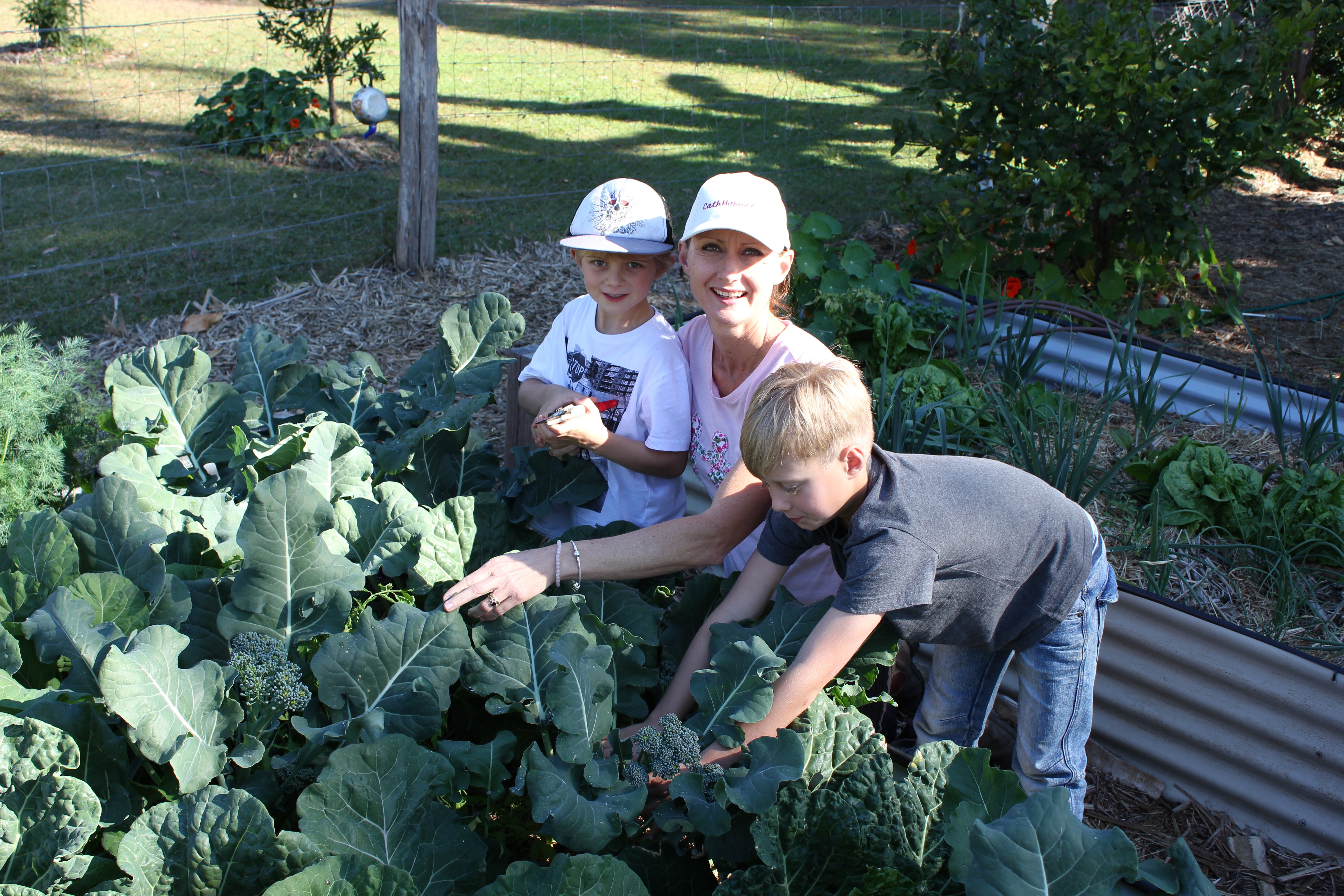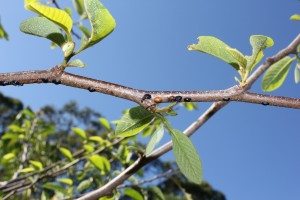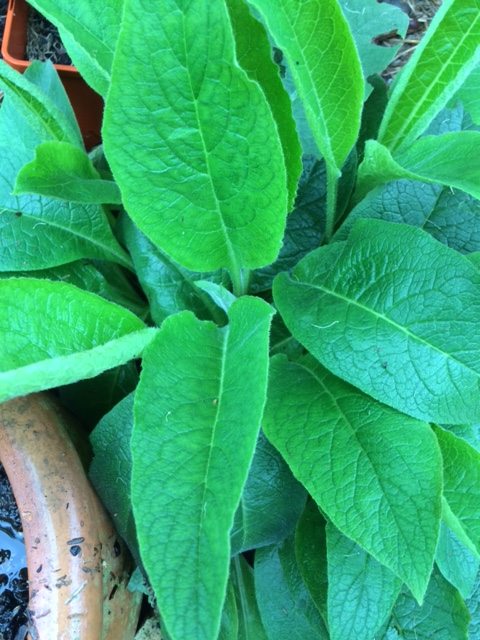Caring for your garden, nourishing the soil then harvesting and sharing fresh food is the ultimate nurturing of the soul.
If we care about what comes out of the earth we are feeding our mind, body and soul everything that’s needed to thrive

Having an organic garden means that on occasions you need to deal with pest or disease problems and also provide nutrients for your garden to thrive.
An important part of caring for your garden is to constantly OBSERVE your plants and gardens.
By getting to know what’s going on in your garden you’re able to notice any changes or problems occurring and then apply sustainable solutions.
Here are a few of my home made remedies that I’ve used in the garden…
One of my favourite home made remedies is a simple oil based spray. If any of my trees or shrubs show signs of scale, aphids or mealy bug, I spray them with my own oil spray which smothers the sap suckers. This is also a good spray to use as a preventative for citrus leaf miner.
It’s so easy to make this spray and both products we all have in our kitchens. Mix a half cup of dishwashing liquid (use a natural product) with one cup of vegetable oil. Shake well and store in a sealed jar or container.
In a spray bottle add 25ml mix in 500ml water. Shake well.
Apply to affected plants on both sides of leaves, in the late afternoon so the plant doesn’t burn during the heat of the day. I would recommend re-applying again in a week’s time to heavily affected plants.
Home Made Garlic Spray for your Garden
- 5 cloves garlic peeled
- 1 cup cooking oil
- 1 teaspoon of dishwashing liquid (use a natural product) or natural liquid soap
- 4 cups of water
Mash/mince the garlic and soak in vegetable oil overnight.
Strain garlic/oil mix and blend with soap and water.
Spray on plants to deter sucking insects like aphids, mealy bug or scale.
All purpose spray – useful as a pest repellent
- 1 onion - peeled
- 3 cloves garlic – peeled
- 2 chilli
I suggest using gloves when making this brew !!
Place all ingredients in a food processor and blend into fine paste.
Add to 1 cups water and steep overnight. Next day strain out liquid and store in a glass jar.
To use dilute 1 part to 3 parts water and place in spray bottle. Apply as needed over foliage, especially after rains.
Milk Spray for Mildews
3 cups milk in 5 litres water and spray over foliage, including under the leaves.
These recipes are useful, but only after other solutions have been applied. If your soil and plants are not healthy then these sprays may not be very effective, just a band-aid solution …
Keep in mind seasonal changes (deciduous trees) and also a change in weather conditions, eg high rainfall and low or high temperatures. If you are regularly observing your garden then at times throughout the year you may notice different pest problems and also possibly diseases on your plants. It’s important to know how to identify these and how to apply solutions.
Here’s a list of a few of our common problems…
Insects…
Chewing – caterpillars, grasshoppers, earwigs, weevils, fruit flies, beetles (specific, eg hibiscus beetle) borers

Can you see the ants and scale here ?
Sucking – aphids, scale, thrips, bronze orange bug (stink bugs), harlequin bug, mealy bug, moths, psyllids (eg, Lilly Pilly Psyllids) citrus gall wasp, leaf miner
Aphids and scale are sucking insects, which means they attach themselves to the plant, either the leaves or stems and suck the sap from the plant. Over time this will create many growing problems in the plant including nutrient deficiencies.
The pests have an excretion which usually turns into sooty mould which is a disease of the plant.
I’m sure many of you have noticed lots of small black ants running all over a shrub or tree and the black sooty mould covering the leaves. Sooty mould develops from the pests excretions which the ants also feed off. Most sucking insects attach themselves to the new growth on plants as this is a highly concentrated area of sugars in the plant. Always check your new leaf growth for sucking insects and treat as below.
There are different applications for chewing or sucking insects. Plants that are being eaten by chewing insects can be sprayed with natural deterrents, like chilli and garlic sprays, and sucking insects are treated with oil based sprays which smother the little suckers, therefore killing them.

Comfrey is a very important part of a sustainable/ permaculture garden as it has many uses and contains a good balance of minerals.
Comfrey has a deep tap root that mines through the deep sub-soils and draws the nutrients into the leaves. When using comfrey in your garden you’re adding these beneficial nutrients to your soil and feeding your plants.
Comfrey Tea
This quick, easy and free brew is an amazing liquid fertiliser for your garden.
I dilute this before applying to the garden by blending one part brew to 5 parts water in a watering can. Pour over soil around all your plants, especially your greens and hungry plants like tomatoes, and also use as a foliar feed over the leaves of vegetables and herbs. Your fruit trees will benefit from an application of this each season.
Latest “A Thriving Garden” Blogs …
How to Deal with Plant Diseases
Have you ever noticed that one minute your plants are thriving and next minute they're dying?? You look at your plants and wonder "What's going wrong?" Usually the first thing we do is water our plants as they usually look a little droopy. Or we look for signs that...
How to Grow Companion Plants in Your Garden
If you’re struggling with pest problems, plants aren’t growing as you’d like, or your garden just isn’t flourishing, then maybe it’s time to consider growing good companion plants in your garden! ‘Companion plants assist in the growth of others by...
Episode 016 – Managing Garden Pests Naturally
Each month in the Soil to Supper Community I provide a Monthly Masterclass based on one of our weekly growing topics. A few months ago I covered this topic and thought it would be a great podcast episode, as many gardeners find pests in the garden! In this episode...
© cath manuel 26 march 2012
